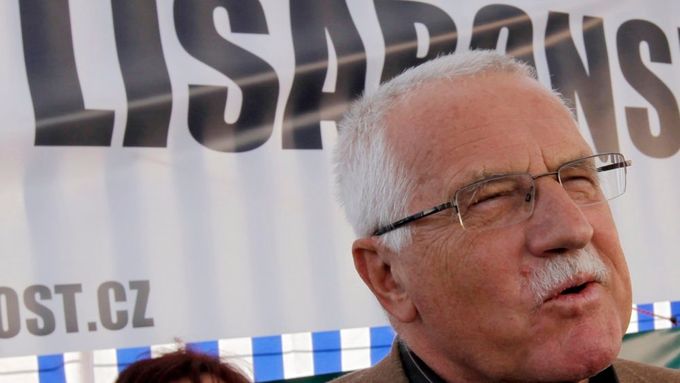Prague/Reuters/- Poland's President Lech Kaczynski looked set to sign the EU's Lisbon treaty within days, and Czech counterpart Václav Klaus will likely bend to pressure and sign after a pending court review, politicians said on Saturday.
Irish voters backed the treaty in Friday's referendum, leaving the Czech and Polish leaders as the only heads of state that have yet to ink the document before it can take effect.
Kaczynski has said he will sign once the Irish approve the pact, which is aimed at streamlining the 27-nation bloc and giving it more clout on the global scene.
"The moment Mr. President knows the final and official results, he signs it immediately," said Pawel Wypych, a minister at Kaczynski's chancellery. "It won't happen over this weekend,
but it's a matter of days."
Klaus' concern over superstate
Klaus, who sees the document as a step toward a European superstate where national states will lose sovereignty, has delayed his signature and has not revealed his strategy.
Both houses of the Czech parliament have approved the treaty but a group of pro-Klaus lawmakers challenged it at the Constitutional Court on Tuesday, legally halting the ratification process for weeks at least. The court is widely expected to dismiss the challenge.
Klaus refused to say how he would proceed if the court cleared the treaty.
"The question does not exist today. Today I have a ban ... until the Constitutional Court releases something," he told reporters.
Czech Prime Minister Jan Fischer believes Klaus will sign the document before the end of the year, his office said.
"The prime minister ... is convinced that ratification will be completed in a way that the Lisbon Treaty can take effect by the end of 2009," it said in a statement.
Under pressure
The Czechs immediately came under pressure from other EU countries to ratify the document quickly to allow the EU to start operating under the new rules from the beginning of 2010, and appoint a new executive, the European Commission, to replace the current team whose term expires at the end of this month.
"I trust that the Polish and Czech ratification, which are still missing, will be completed successfully soon to allow the treaty to take force as soon as possible," prime
minister of Hungary Gordon Bajnai said.
"It's vital that no country should impede that process, to open the way for the measures still needed," he added.
Hopes of British Conservatives
The danger of delay is that Britain's Conservatives who lead opinion polls, have said they would hold a referendum on Lisbon if it is not ratified in all EU states before an election
expected by May 2010, and the treaty's critics hope Klaus will keep the door open.
But Klaus said on Saturday the Britons were acting too late, a possible hint he may not hold up signing the pact for long.
"I'm afraid that the people of Britain should have been doing something really much earlier and not just now, too late, saying something and waiting for my decision," he said.
Stefan Fuele, Czech minister for Europe, said Klaus would not hold out for any British vote.
"I am convinced that President Vaclav Klaus ... would not tie up the ratification of the Lisbon Treaty in the Czech Republic with the wishes of any other member state," he said.

















